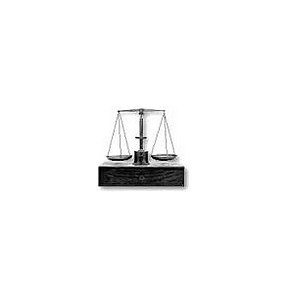Best Adoption Lawyers in Estonia
Share your needs with us, get contacted by law firms.
Free. Takes 2 min.
Free Guide to Hiring a Family Lawyer
Or refine your search by selecting a city:
List of the best lawyers in Estonia
About Adoption Law in Estonia
Adoption in Estonia is primarily governed by the Estonian Family Law Act. The country has a structured legal framework designed to ensure the welfare of children and protect the rights of adoptive parents. Adoption in Estonia can be characterized as domestic or international, and the process starts with the termination of the biological parents' rights and culminates in granting custody and parental rights to the adoptive parents. Estonia is a signatory to the Hague Adoption Convention, which regulates international adoptions to ensure ethical standards and respect for children’s rights.
Why You May Need a Lawyer
Engaging a lawyer can be crucial in navigating the complexities of Adoption law in Estonia. Common situations where legal assistance may be needed include:
- Understanding the legal requirements and processes for domestic or international adoption.
- Addressing disputes related to custody or biological parental rights.
- Ensuring compliance with international adoption regulations, especially for Hague Convention procedures.
- Assessing eligibility and suitability criteria for potential adoptive parents.
- Representing parties in court proceedings associated with adoption.
- Interpreting post-adoption legal rights and responsibilities.
Local Laws Overview
Several key aspects of Estonian adoption laws include:
- Eligibility: Both domestic and international adoptions are permitted, provided the adopters meet age and other criteria. Prospective parents should usually be at least 25 years old.
- Consent: Consent is required from biological parents, and the child, if aged ten or over, must also consent, unless deemed unable to comprehend the implications.
- Home Study: A critical step in the process where the living conditions, suitability, and readiness of adoptive parents are evaluated.
- Court Proceedings: Adoption is finalized through a court decision, with comprehensive investigation and documentation required to ensure the child's best interests are at heart.
- Post-Adoption Support: Families may be eligible for counseling and other resources to aid the transition following adoption.
Frequently Asked Questions
What is the minimum age requirement to adopt a child in Estonia?
To adopt a child in Estonia, prospective adoptive parents must generally be at least 25 years old.
Is single parent adoption allowed in Estonia?
Yes, single individuals are permitted to adopt in Estonia, subject to fulfilling the necessary legal criteria and suitability evaluations.
How long does the adoption process typically take?
The adoption process duration can vary significantly depending on individual circumstances, including whether it is a domestic or international adoption. Generally, it can take several months to over a year.
Do adoptive parents need to live in Estonia?
No, non-residents can adopt children from Estonia, especially under international adoption agreements like the Hague Convention, but residency can influence process specifics and post-adoption evaluations.
What are the costs associated with adoption in Estonia?
While adoption services by governmental agencies might be low-cost or free, there can be expenses related to legal fees, translation, travel (for international adoption), and administrative processes.
Can adopted children find their biological parents?
Adopted children in Estonia have the legal right to access information about their biological parents upon reaching 18, subject to keeping such information confidential until then.
How is the adoption of children with special needs handled?
Special provisions and programs exist to encourage and support the adoption of children with special needs, with additional assistance often being available to adoptive families.
Are adoptive parents obligated to maintain cultural ties with their child's origin country?
While not legally obligated, maintaining cultural ties can be encouraged, particularly in international adoptions, to aid the child's identity and integration.
What oversight exists post-adoption in Estonia?
Post-adoption assessments may be required to ensure the welfare of the adopted child, typically conducted by social services or assigned agencies.
How do adoption laws treat the inheritance rights of adopted children?
Adopted children in Estonia have similar inheritance rights to biological children within the adoptive family, securing their legal standings regarding family heritage and property.
Additional Resources
For further information and assistance, consider contacting:
- The Estonian Ministry of Social Affairs - Provides guides and policy information on adoption processes.
- Local family courts - For specific legal proceedings and court services.
- Children's Welfare Organizations - Offer resources and support for adoptive families and children.
- Hague Convention on International Adoption - For guidelines on international adoption standards and procedures.
Next Steps
If you're considering adoption or need legal advice in Estonia, consider the following approaches:
- Research and understand the adoption requirements and legal frameworks relevant to your case.
- Seek dedicated legal consultation for personalized guidance, ensuring all pertinent regulations and requirements are met.
- Contact the Estonian adoption authorities or child welfare services for information and registration details.
- Engage with a legal professional early to avoid any pitfalls associated with the adoption process, especially for international cases.
Taking these steps can facilitate a smoother and legally sound adoption process, securing the best outcome for all parties involved.
Lawzana helps you find the best lawyers and law firms in Estonia through a curated and pre-screened list of qualified legal professionals. Our platform offers rankings and detailed profiles of attorneys and law firms, allowing you to compare based on practice areas, including Adoption, experience, and client feedback.
Each profile includes a description of the firm's areas of practice, client reviews, team members and partners, year of establishment, spoken languages, office locations, contact information, social media presence, and any published articles or resources. Most firms on our platform speak English and are experienced in both local and international legal matters.
Get a quote from top-rated law firms in Estonia — quickly, securely, and without unnecessary hassle.
Disclaimer:
The information provided on this page is for general informational purposes only and does not constitute legal advice. While we strive to ensure the accuracy and relevance of the content, legal information may change over time, and interpretations of the law can vary. You should always consult with a qualified legal professional for advice specific to your situation.
We disclaim all liability for actions taken or not taken based on the content of this page. If you believe any information is incorrect or outdated, please contact us, and we will review and update it where appropriate.
Browse adoption law firms by city in Estonia
Refine your search by selecting a city.













